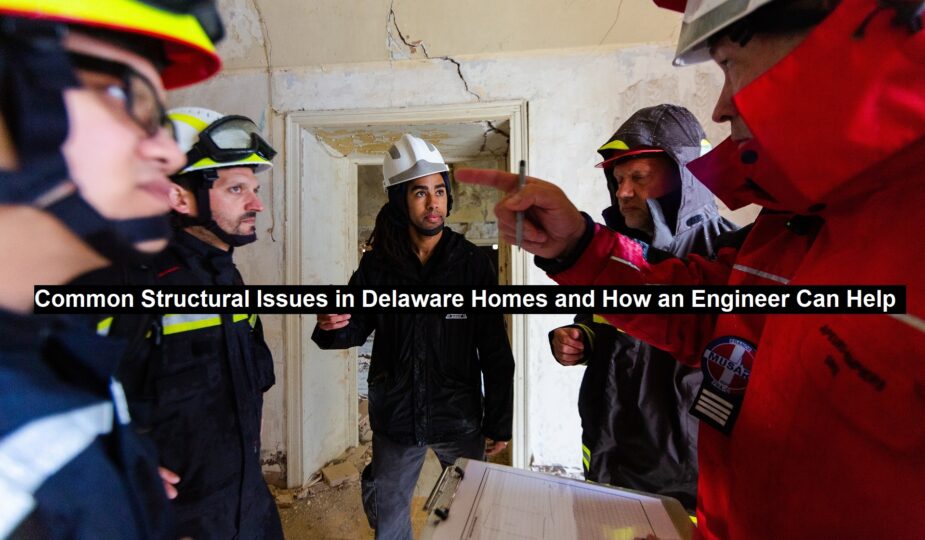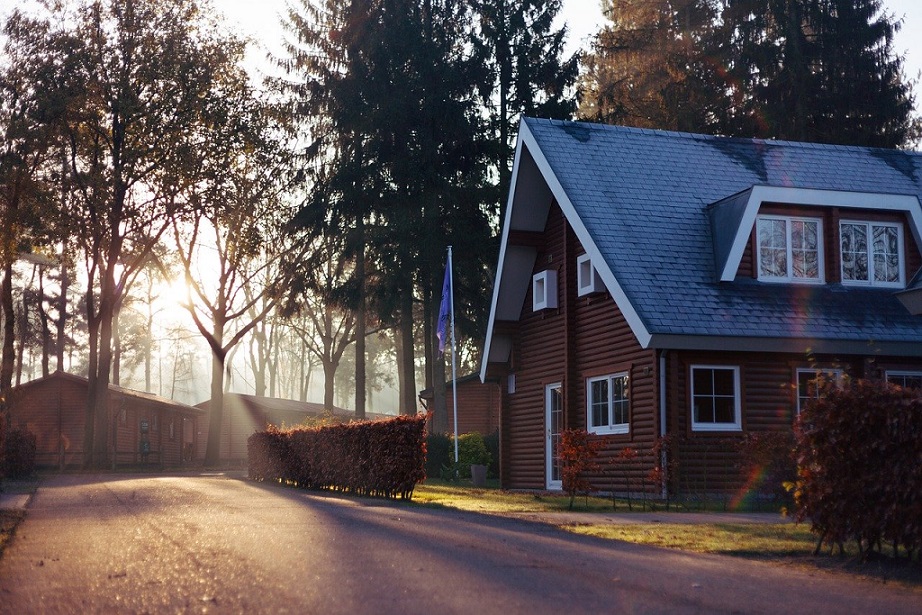If you’re a homeowner in Delaware, you know how charming and varied the homes can be—from historic brick houses in New Castle to cozy beach cottages near Rehoboth. But with that charm often comes a unique set of structural challenges. Whether your home is brand new or has been standing for generations, it’s important to know what issues to look out for—and when it’s time to call in a structural engineer.
Let’s dive into some of the most common structural problems faced by Delaware homeowners and how an engineer can help you fix them before they turn into major headaches.
1. Foundation Cracks and Settling: When the Base Shifts
In Delaware, our soil types range from sandy to clay-heavy, which means foundations don’t always have an easy job. Over time, the ground beneath your home can shift, causing the foundation to settle or crack.
What You Might Notice:
- Cracks in your basement walls or floors
- Uneven floors inside the home
- Doors and windows that stick or don’t align properly
How an Engineer Helps:
A structural engineer can figure out whether those cracks are purely cosmetic or signs of a bigger issue. They’ll inspect the entire foundation, check for movement, and give you expert guidance on solutions like underpinning, pier systems, or drainage fixes to keep your foundation stable for years to come.
Read: Feeling Lost in the Aussie Property Game? Here’s What Can Help
2. Moisture Trouble: Water Can Be Sneaky
Living in Delaware means dealing with humidity, rain, and sometimes snow—and all that moisture can find its way into your home. Over time, this can cause wood to rot, mold to grow, and even weaken structural parts of your house.
Signs to Look For:
- Musty smells, especially in basements or crawl spaces
- Mold spots on walls or ceilings
- Warped wood or sagging floors
What an Engineer Will Do:
An engineer doesn’t just point out water damage—they track down the source. Whether it’s poor grading, leaky gutters, or a hidden drainage issue, they can recommend effective fixes like sump pumps, waterproof membranes, and improved ventilation to keep your home dry and healthy.
3. Pests: Termites Don’t Knock Before Entering
Termites are common in Delaware, and they love the wooden framing in many older homes. The worst part? They often do their damage quietly over months—or even years—before you notice anything.
Warning Signs:
- Hollow-sounding wood
- Small piles of sawdust (called “frass”)
- Buckling floors or sagging ceilings
When to Call in an Engineer:
Once a pest control expert has treated the infestation, a structural engineer should evaluate any damage the termites caused. They’ll let you know if beams or joists need to be replaced or reinforced—and create a repair plan that keeps your house structurally safe.
4. Roof Sagging: A Top-Down Problem
Our winters can be rough, and heavy snow or old age can take a toll on your roof. If the trusses or rafters start to weaken, you might notice sagging or even water leaks.
What You Might See:
- A wavy roofline
- Cracks or stains on interior ceilings
- Difficulty opening attic doors or vents
The Engineer’s Role:
They’ll inspect your attic framing and determine whether it’s strong enough to support the load. If not, they’ll design a reinforcement plan, recommend truss repairs, or suggest replacing part of the roof to prevent future collapse or costly damage.
5. DIY Gone Wrong: When Renovations Miss the Mark
Plenty of homes in Delaware have been renovated—some well, and others not so much. If past owners knocked down a wall or added a room without proper support, it could leave your home vulnerable.
Signs of Poor Renovation:
- Cracks near door frames or ceilings
- Sagging floors in newer additions
- Doors that don’t close right after remodeling
How an Engineer Helps:
A structural engineer can assess whether any changes made during a renovation affected the integrity of your home. They’ll identify mistakes and offer engineered drawings or plans to safely correct them—whether that’s reinforcing a beam or rebuilding a load-bearing wall.
6. Chimney and Brickwork Problems: A Crumbling Situation
Chimneys and brick homes are popular in parts of Delaware, especially in older towns. But over time, bricks can crack, shift, or start crumbling—especially after years of freezing and thawing.
What to Watch:
- Chimney leaning or pulling away from the house
- Missing mortar or flaking bricks
- Gaps between the chimney and siding
Why You Need an Engineer:
They’ll assess how serious the issue is and suggest the best course of action. It might be as simple as repointing the brick or as serious as rebuilding the chimney. Either way, they’ll make sure it’s structurally sound and safe.
7. Bowing Basement Walls: Pressure from All Sides
If your home has a basement, the surrounding soil can exert constant pressure on the walls—especially after a rainy season. Over time, those walls might start to bow or even crack.
Tell-Tale Signs:
- Horizontal cracks or bulges in basement walls
- Water stains or seepage
- A feeling that the walls are closing in
The Engineer’s Fix:
A structural engineer can measure the movement of the walls and design reinforcement solutions like carbon fiber straps, wall anchors, or steel bracing. If the problem is caught early, it can often be fixed without major reconstruction.
Why Bring in a Structural Engineer?
You might be wondering, “Can’t a contractor or inspector handle this?” Not always.
A structural engineer is specifically trained to analyze the integrity of your home’s frame, foundation, and other load-bearing components. They don’t just spot problems—they solve them. Their evaluations are unbiased, thorough, and often required for permits, insurance claims, or resale purposes.
Here’s what they offer:
- Peace of mind about your home’s safety
- Expert plans and solutions tailored to your situation
- Compliance with local building codes
- Honest advice that saves money in the long run
Final Thoughts
Whether you’re living in a colonial-era home or a new build on the coast, no house is immune to structural issues. Delaware’s mix of weather, soil, and aging buildings makes it especially important to stay on top of these potential problems.
The good news? Most of these issues can be fixed—especially if you catch them early and get help from the right professionals. A qualified Structural Engineer Delaware isn’t just someone to call when things go wrong—they’re a valuable partner in keeping your home strong, safe, and standing for years to come.
Author’s Bio:
Ryan smith is a qualified content writer with experience in writing on a variety of subjects. He has written a lot of content on specialty engineering, Structural Engineer Delaware, Florida building inspection services and Structural Engineer as well.










